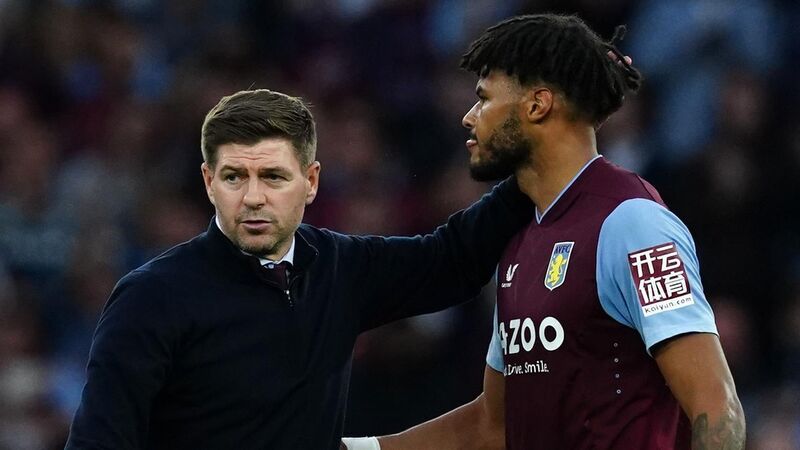Damien Delaney: Stripping Tyrone Mings of captaincy made no sense

DEMOTED: Aston Villa manager Steven Gerrard (left) and Tyrone Mings after the Manchester City game. Pic: Martin Rickett/PA Wire.
Steven Gerrard got a much-needed boost on Saturday with Aston Villa's draw against the champions. Because the gleam had quickly dulled around the Villa boss. That initial pride of an icon choosing your club can fade pretty fast.
Gerrard left Glasgow Rangers after winning the SPL and made Villa Park the next stop in his new upwardly mobile career. A shoo-in, we presumed, for the Liverpool job once the formality of improving Villa's lot had been dealt with. Except the narrative hasn't been nearly as jarring as the reality at Villa Park, where things have been going nowhere near as well as anyone hoped or expected.








